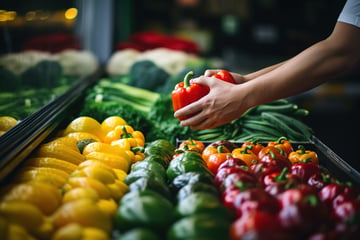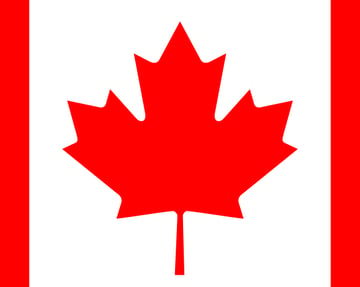The Food Safety Modernization Act (FSMA) was signed into law in January 2011, expanding the Food and Drug Administration (FDA)’s jurisdiction over food safety and regulation. The Act establishes that those who produce, process, transport, distribute, or sell products serve a key role in maintaining food quality and safety, and further, they have a responsibility to keep the consumer safe.
FSMA takes a preventative approach to food safety rather than a reactive one, enabling the FDA and the industry as a whole to better protect the public and strengthen the global food supply chain. This includes prioritizing traceability along the supply chain as a means to better identify and quickly remove contaminated items.
More recently, the FDA’s Final Rule for FSMA 204 establishes stricter traceability recordkeeping requirements (beyond the ones that already exist) for those who “manufacture, process, pack or hold foods” on the Food Traceability List (FTL), requiring they maintain records containing Key Data Elements (KDEs) associated with a specific Critical Tracking Event (CTE), and provide that information to the FDA within 24 hours if and when requested, among other requirements.
Who Does FSMA 204 Impact?
While the rules and regulations of FSMA were heavily influenced by grocery lobbyists and the food industry as a whole, there are other key stakeholders that FSMA 204 impacts.
Most food facilities (except meat, poultry, and certain egg producers that fall under USDA jurisdiction) that handle food on the FTL intended to be sold to US consumers will be required to abide by FSMA 204’s recordkeeping requirements. This includes processors, manufacturing plants, farms, wholesalers, distributors, retail food establishments, grocers, and restaurants.
 For FSMA 204, some of those stakeholders can be defined as:
For FSMA 204, some of those stakeholders can be defined as:
- Restaurant: a facility that prepares and sells food directly to consumers for immediate consumption.
- Retail Food Establishments (RFE): an establishment that sells food products directly to consumers as its primary function.
- Distributor: a middleperson between food manufacturers and foodservice operators.
FSMA 204 FAQs for Restaurants, Retailers, and Distributors
Food traceability has been a major focus for both businesses and governments in the past few years. In our 2023 State of Traceability Report, we dive into how international legislation, consumer pressure, and the past few years have impacted traceability efforts across the global food supply chain, including how restaurants, RFEs, and other businesses can adapt.
While some exemptions to FSMA 204 do exist, most restaurants, RFEs, and distributors need to be aware of their role in the supply chain and how FSMA 204 traceability recordkeeping requirements will impact them. Below, we unpack some FAQs for these stakeholders to provide guidance to ensure FDA-compliance when it comes to FSMA 204:
Do you have to track your own KDEs, even if they’re coming from your own distribution center (DC)?
Yes, if you are a distributor that ships out any food product on the FTL, you must comply with the CTE requirement, which includes tracking and recording the shipping KDEs. FSMA 204 states this applies to both shipping and receiving CTEs, even for intracompany shipments, too. This is part of the comprehensive traceability effort to access records of KDEs associated with any CTEs in food production and distribution in order to trace backward and forward in the event of an outbreak.
If you make a food product out of an item on the FTL, do you still need to track it?
Yes, traceability recordkeeping requirements apply to both individual items on the FTL and any food product that has ingredients on the FTL. So, for example, take a package of peanut butter crackers. While the crackers themselves are not on the FLT, peanut butter is…so, you need to track it.
If you source food from a local, small farm for your RFE or restaurant, do you need to track those items?
No, if you source food that is produced on a local or small farm and shipped directly to your RFE or restaurant, you do not need to track those items. You do, however, have to keep a record of the name and address of that farm for 180 days.
Are there any other exemptions to the Food Traceability Rule?
Yes, there are a few exemptions for restaurants, RFEs, and distributors. According to the FDA, the rule does not apply to:
- RFES, restaurants, or distributors that do not manufacture, process, pack, or hold foods on the FTL.
- RFEs or restaurants with an average annual monetary value of food sold or provided during the previous three-year period was no more than $250,000 (on a rolling basis), adjusted for inflation. If your average annual monetary value of food sold or provided during the previous three-year period was no more than $1,000,000 (on a rolling basis), adjusted for inflation, you must still maintain records required by the rule, but do not have to provide the FDA with an electronic sortable spreadsheet.
- RFEs or restaurants when purchasing food from another RFE or restaurant if the purchase occurs outside of the buyer’s usual purchasing practice. However, the purchaser must keep a record of what they purchased, when they purchased it, and the name and address of the place from which they purchased.
- RFEs or restaurants who hold raw bivalve molluscan shellfish that are part of the National Shellfish Sanitation Program, which has its own traceability requirements that must be followed.
What exactly are the recordkeeping requirements for FSMA 204?
The FDA has a few key requirements for recordkeeping:
- Records should be legible original paper, electronic (spreadsheet or electronic link), or true copies and stored to prevent deterioration or loss.
- Records must be kept for two years.
- Records should be available to the FDA upon request within 24 hours (or a reasonable time if FDA agrees) of the request.
- Records can be stored offsite, in a centralized location (for multi-location businesses), or by another entity, if they can be delivered to the FDA within the designated time frame.
- Businesses should also provide any information that will help the FDA interpret records, which may include translations if records are in another language.
So, you can you still use paper records?
Yes, the FDA will accept paper records, as long as they have been appropriately stored to prevent deterioration or loss.
However, it is much more efficient to capture and share this information electronically. A solution like FoodLogiQ Traceability can provide you with that ease and convenience of access. The food traceability software stitches together the CTEs of your products and ingredients at the batch-lot level to give you a complete visualization of your supply chain. It also ensures that your records and other FDA-required documents are stored in a secure, central location and can be easily and quickly accessed and shared in the event of an FDA audit or food product recall.
Navigating FSMA 204 with Trustwell Connect
FSMA 204 lays the foundation for true end-to-end traceability for food products, and it also emphasizes digital recordkeeping and tech-enabled traceability systems enable that traceability. With Trustwell Connect’s suite of FoodLogiQ solutions, restaurants, retailers, and distributors can have access to a solution that makes those tracking and tracing requirements one step easier. If you are looking for assistance with navigating FSMA 204 and ensuring compliance, contact Trustwell today.
Other posts you might be interested in
View All Posts
Trustwell News
6 min read
| September 28, 2023
What’s Happening on the Hill: Food Labeling, FSMA, and More at reCONNECT 2023
Read More
Food Industry
6 min read
| October 5, 2023
Learn About Expanding Recalls Internationally with Industry Leaders at reCONNECT 2023
Read More
Food Labeling
2 min read
| February 23, 2017

